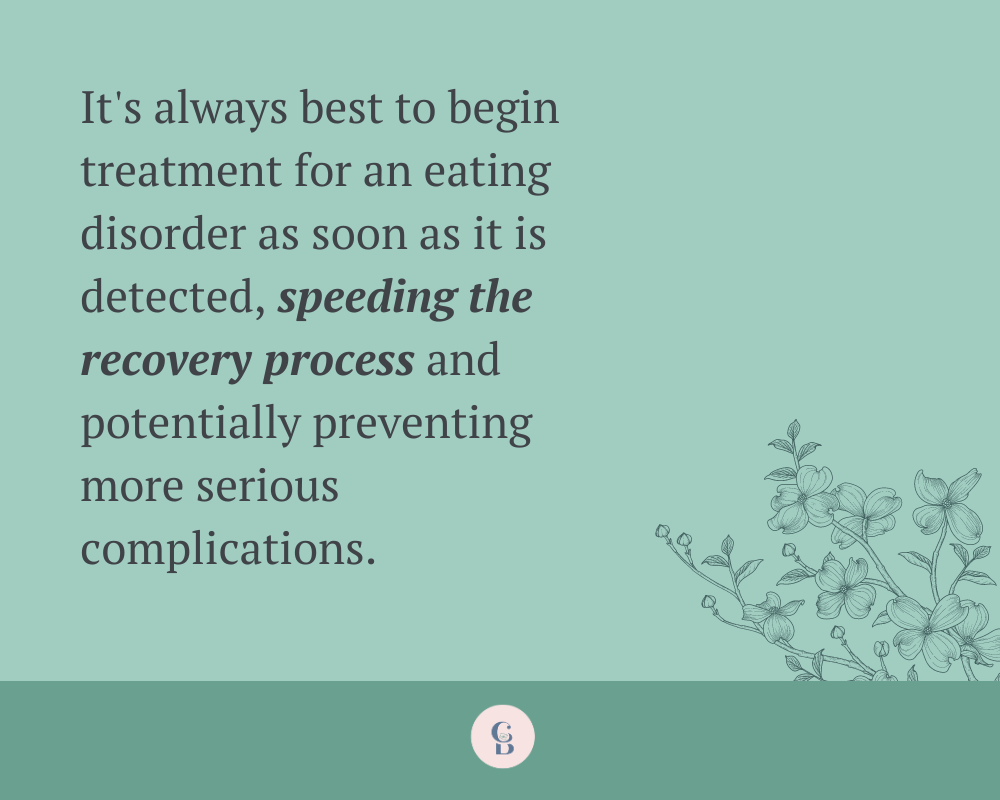Eating Disorders and Disordered Eating Explained
Eating disorders are serious mental health conditions that require attention and treatment from a team of professionals. Men, women and children can experience severe mental and physical challenges stemming from an eating disorder, but these challenges also extend to the family, friends and loved ones of anyone experiencing an eating disorder. It is always best to begin treatment for an eating disorder as soon as it is detected, as this helps speed the recovery process along and may prevent more serious complications.
However, even when intervention and treatment begins early, it can be a long road. One of the reasons that eating disorders are becoming more prevalent is that “disordered eating” has become normalized through the messaging of diet culture—strict rules around how to eat, when to eat and what to eat that can result in a disordered and unhealthy relationship with food. Disordered eating is different than having an eating disorder. However, disordered eating can be the precursor to an eating disorder, making it important to work through and challenge.
There are five official eating disorder diagnoses per the DSM-5 including Anorexia Nervosa, Bulimia Nervosa, Binge Eating Disorder, Avoidant Restrictive Feeding and Intake Disorder (ARFID), and Other Specified Eating Disorder (OSFED). Orthorexia is not listed as a diagnosis in the DSM-5, but it is a condition important to mention here as well. The frequency of the behaviors, which are discussed below, are what helps to determine the diagnosis and create a distinction between disordered eating and an eating disorder.
Anorexia Nervosa is characterized by restricting food intake and a fear of weight gain. Bulimia Nervosa is characterized by episodes of binge eating followed by certain behaviors directed toward the eaten foods, such as self-induced vomiting, misuse of laxatives or diuretics and/or excessive exercise. Binge Eating Disorder is characterized by episodes of binge eating, which entails eating more quickly than usual, eating until uncomfortably full, choosing to eat alone/in secret, and feeling embarrassed or guilty after eating.
ARFID entails a disturbance in eating habits due to a lack of interest in food, sensory issues related to food or concern about something happening (for example throwing up or choking) due to eating. OSFED encompasses other feeding or intake issues that don’t fall under another eating disorder diagnosis. Characterizations of OSFED may include an atypical presentation of another eating disorder.
Orthorexia refers to an obsession with healthy eating. A person with orthorexia may become rigid in the types of foods they eat and very concerned to the point of prioritizing the quality of their food rather than the quantity.
Disordered eating describes behaviors toward food and eating habits motivated by external rather than internal eating cues. They can include skipping meals to compensate for food previously eaten or in anticipation of an upcoming meal. For example: skipping breakfast and having a smaller lunch because you’re anticipating dinner out at a restaurant that evening. Disordered eating may look like not allowing yourself to have a piece of birthday cake because you don’t think it’s healthy and you know that you’ll feel guilty if you allow yourself a piece. Disordered eating can look like choosing foods you think you should eat all day long, only to then eat a whole bag of chips and a carton of ice cream that evening because you feel deprived and over hungry.
If any of these behaviors sound like something you have been experiencing, it may be time to re-evaluate your relationship with food. Food doesn’t have to be the enemy. In fact, it’s meant to be life giving, not life sucking. Food is meant to be enjoyed, not feared. Working with a Registered Dietitian who specializes in eating disorders and disordered eating can help you to heal and navigate through any of the issues discussed here. You deserve to have a healthy relationship with food and with your body.
If you have questions or would like to begin this work with Courtney Bascom Nutrition, please contact us.
And if you believe that you or someone you know may have an eating disorder, please reach out to a physician, Registered Dietitian or a health professional as soon as possible.






